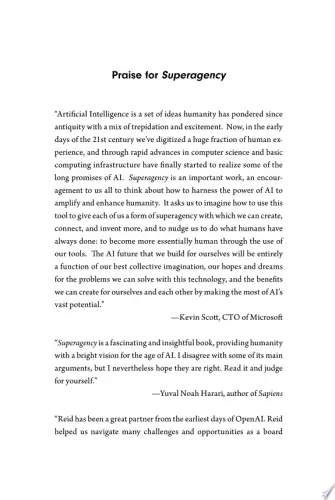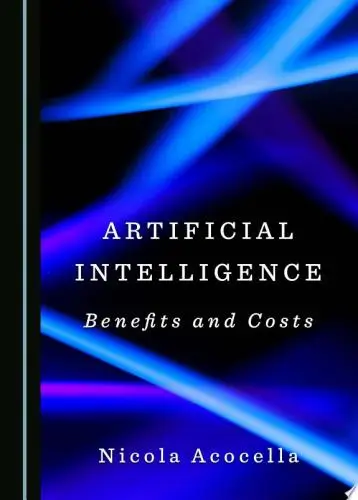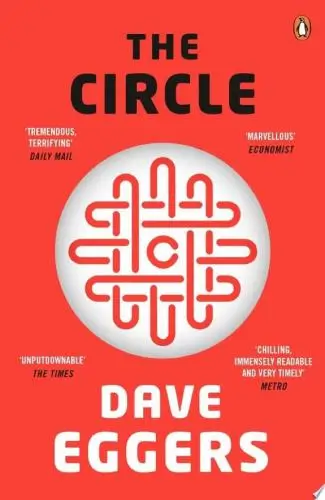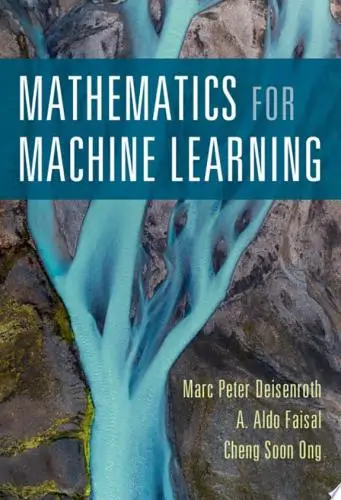Mathematics for Machine Learning
What's it about?
Mathematics for Machine Learning offers you a structured approach to the essential mathematical concepts underpinning machine learning. You will explore linear algebra, calculus, probability, and statistics, gaining insights into how these areas interconnect. The book emphasizes practical applications, helping you understand how to apply theoretical concepts to real-world problems. Each chapter builds on the last, ensuring you develop a solid foundation that enhances your machine learning skills. This resource is ideal for both beginners and those looking to reinforce their knowledge.
About the Author
Marc Peter Deisenroth is a distinguished researcher in machine learning, focusing on Gaussian processes and reinforcement learning. He is known for his work on data-efficient learning algorithms and probabilistic modeling. His contributions emphasize practical applications and theoretical foundations, enhancing the efficiency and scalability of machine learning systems.
5 Key Ideas of Mathematics for Machine Learning
Unlock the Power of Linear Algebra
Mastering linear algebra provides the foundational tools to solve complex machine learning problems and navigate life's intricacies.
Picture linear algebra as the hidden blueprint in a skyscraper; unseen but crucial, it holds the structure of data and transforms chaos into harmony.
- Builds a foundation: Linear algebra is essential for understanding data structures and manipulating data efficiently.
- Enhances scalability: Many algorithms in machine learning, like PCA and SVD, rely heavily on linear algebra techniques.
- Empowers understanding: Grasping these concepts allows for better interpretation and manipulation of multidimensional data.
Dedicate 20 minutes each day to practicing linear algebra problems; start with matrix multiplication and expand from there.
Avoid treating linear algebra as a series of abstract rules; instead, visualize its applications in real-world scenarios, like image processing or 3D modeling.
Harness the Influence of Probability
Embracing probability allows you to navigate uncertainty and make informed decisions amid the chaos of life.
Imagine probability as your weather forecast; it isn't about predicting with certainty, but preparing you for possibilities, ensuring you're never caught off guard.
- Informs decision-making: Probability theory offers a framework for weighing risks and rewards in uncertain situations.
- Enhances predictive power: Understanding probabilistic models improves your ability to anticipate what might happen next.
- Encourages flexibility: Embracing uncertainty fosters a mindset that's adaptable and open to new information.
Begin using probability in daily decisions, whether estimating logistics for a task or assessing the likelihood of outcomes in personal projects.
Don't strive for absolute certainty; probability is about managing uncertainty, not eliminating it.
Embrace the Art of Optimization
Optimization helps streamline processes and achieve peak performance in both machine learning algorithms and everyday tasks.
Think of optimization like a sculptor chiseling away excess marble, revealing the masterpiece within – it's about efficiency and elegance, not complexity.
- Enhances efficacy: Optimization algorithms, like gradient descent, are essential for tuning models to perform optimally.
- Boosts productivity: Optimization principles can be applied to improve efficiency in everyday workflows.
- Promotes balance: Finding the optimal solution often involves balancing competing priorities and constraints.
Identify one area in your daily routine to optimize; streamline it by eliminating redundant steps or tweaking the process.
Avoid the allure of over-optimization which can lead to diminishing returns; sometimes 'good enough' is optimal.
Deeper knowledge. Personal growth. Unlocked.
Unlock this book's key ideas and 15M+ more. Learn with quick, impactful summaries.
Read Full SummarySign up and read for free!
Mathematics for Machine Learning Summary: Common Questions
"Mathematics is the language with which God has written the universe." This quote from the book beautifully encapsulates the essence of Mathematics for Machine Learning by Marc Peter Deisenroth. The book bridges the gap between mathematical principles and their practical applications in machine learning, making complex concepts more accessible.
I was particularly hooked by the sections on linear algebra and calculus, which lay the groundwork for understanding algorithms. The clear explanations of eigenvalues and gradient descent reinforced my understanding, yet some of the more advanced topics, like manifold learning, left me scratching my head a bit. It’s a tough dance between theory and application, but Deisenroth does an admirable job of providing relatable real-world examples.
If you enjoyed The Elements of Statistical Learning or Deep Learning, this book is a worthy addition to your reading list. Overall, I highly recommend this book for anyone looking to deepen their mathematical knowledge in the context of machine learning—it's both enlightening and challenging.
Experience Personalized Book Summaries, Today!
Discover a new way to gain knowledge, and save time.
Sign up for our 7-day trial now.
No Credit Card Needed

Similar Books

Demystifying Climate Models
Andrew Gettelman
Clinical Microbiology
Parslow
Medical Laboratory Science Review
Robert R Harr
Superagency
Reid Hoffman
Artificial Intelligence
Nicola Acocella
Frankenstein
Mary Shelley
The Circle
Dave Eggers
Roitt's Essential Immunology
Peter J. Delves
Laws of UX
Jon Yablonski
Structures
J. GordonTrending Summaries

Peak
Anders Ericsson
Never Split the Difference
Chris Voss
Smart Brevity
Jim VandeHei
The Psychology of Money
Morgan Housel
The First 90 Days
Michael D. Watkins
Atomic Habits
James Clear
Thinking, Fast and Slow
Daniel Kahneman
The Body Keeps the Score
Bessel van der Kolk M.D.
The Power of Regret
Daniel H. Pink
The Compound Effect
Darren HardyNew Books

Comprehensive Casebook of Cognitive Therapy
Frank M. Dattilio
The White Night of St. Petersburg
Michel (Prince of Greece)
Demystifying Climate Models
Andrew Gettelman
The Hobbit
J.R.R. Tolkien
The Decision Book
Mikael Krogerus
The Decision Book: 50 Models for Strategic Thinking
Mikael Krogerus
Fichte
Johann Gottlieb Fichte
Do No Harm
Henry Marsh
This is Going to Hurt
Adam Kay

